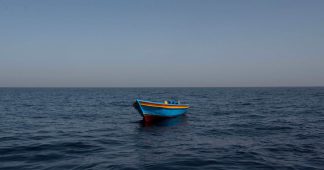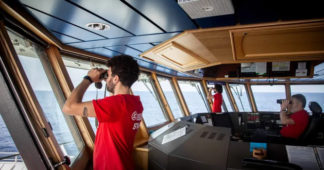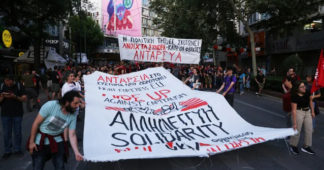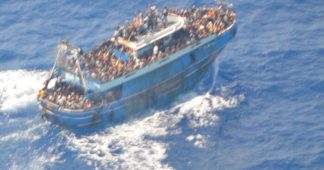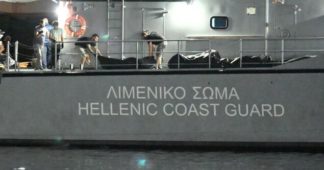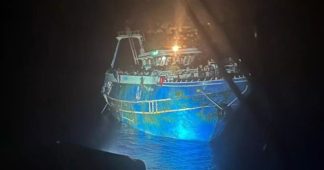By
On June 14th, off the coast of Greece, a fishing boat carrying hundreds of people seeking to come to Europe sank. At time of writing, 104 people have reportedly been rescued, 81 bodies have been found and up to 500 people remain missing. What exactly happened is still being uncovered—by investigative journalists and human-rights defenders (HRDs)—but some things are already clear.
It is clear that this tragedy could have been avoided. The Greek authorities were alerted to the boat’s distress by the activist group Alarm Phone hours before it capsized. The Hellenic Coastguard was in contact with the passengers on board and had an obligation under international law to intervene, given the clear overcrowding and unseaworthiness of the ship.
It is clear that the disaster was a product of political decisions. While Greece and the European Union, including through Frontex, its border and coastguard agency, have placed the blame for the catastrophe on people-smugglers, they are not the reason people choose to embark on extremely dangerous routes in the hope of reaching the EU. So long as there are no safe, legal and accessible routes for people to take when fleeing conflict and the effects of climate change, or seeking to reunite with loved ones or to search for a better life, there will be a business for smugglers. Only states can open these routes. They choose not to do so.
Continue reading at www.socialeurope.eu
Greece boat tragedy: What do we know about the coastguard’s role?
Jun 20, 2023
Hundreds of people remain missing in the aftermath of a shipwreck off the coast of western Greece, near the town of Pylos in the early hours of June 14.
So far, only 104 survivors have been found, none of them the women or children who were allegedly kept in the hold of the ship.
Questions remain over the role of the Greek coastguard in the incident and why those onboard were not rescued sooner.
Alarm Phone, a hotline for refugees in distress in the Mediterranean, said it had alerted Greek authorities at 5:53pm local time (14:53 GMT) after it had been contacted by those onboard for help.
Media investigations have also suggested the boat was barely moving in the seven hours before it capsized, in contradiction to claims by the Greek coastguard that the boat was on course to Italy and had rejected rescue.
Continue reading at www.aljazeera.com
We remind our readers that publication of articles on our site does not mean that we agree with what is written. Our policy is to publish anything which we consider of interest, so as to assist our readers in forming their opinions. Sometimes we even publish articles with which we totally disagree, since we believe it is important for our readers to be informed on as wide a spectrum of views as possible.
